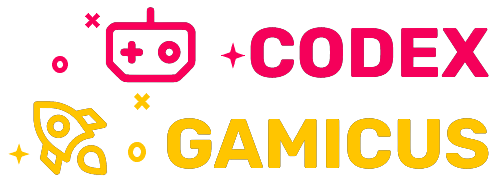| Titan Quest | |
| Titan Quest.jpg | |
| Developer(s) | Iron Lore Entertainment |
| Publisher(s) | THQ |
| Designer | Brian Sullivan |
| Engine | Pathfinding - PathEngine |
| status | Status Missing |
| Release date | June 26, 2006 (NA) |
| Genre | Action role-playing (hack and slash) |
| Mode(s) | Single-player, Multiplayer |
| Age rating(s) | ESRB: Teen (T) |
| Platform(s) | Microsoft Windows |
| Arcade system | Arcade System Missing |
| Media | CD & DVD ROM |
| Input | Keyboard and mouse |
| Requirements | 1.8 GHz. Processor, 512 MB RAM, 5 GB free HD space, NVIDIA GeForce 3/ATI Radeon 8500 or higher. |
| Credits | Soundtrack | Codes | Walkthrough | |
Titan Quest is an Action RPG developed by Iron Lore Entertainment. It was released worldwide by THQ on June 26, 2006.[1] The game was released on Steam, along with the expansion Titan Quest: Immortal Throne, on July 17, 2007.[2] The game is also available via Impulse, GamersGate, GameTap, and Direct2Drive.
A Limited Edition version was also released at roughly the same time as the original and featuring superior packaging. A Deluxe Edition was released containing the original game with all the patches included. Finally a Gold Edition was later published in 2007, containing copies of both Titan Quest and its expansion pack.
Gameplay[ | ]
Players take the role of a hero, fighting monsters in three ancient, classical world settings including Sparta/Ancient Greece, Ancient Egypt and the Silk Road/Asia. The game was conceived by Age of Empires co-creator Brian Sullivan and uses ragdoll physics, full lighting effects, day-night cycles, accurate ancient world mythology, modern 3D graphics, unique treasures, rapid gameplay. There is also a sophisticated world editor for players to create their own custom worlds, mods, and quests. The game contains over a thousand pieces of usable equipment, both common and rare, for the player to loot. Titan Quest gets significantly harder throughout the experience, which requires the player to make good skills and attribute point choices even at the beginning of the game.
Multiplayer[ | ]
Titan Quest's multiplayer feature allows 2-6 players to play on the same server. To connect to a server, one can create a server on a LAN, or the Internet. The Internet option announces the server to a centralized pairing system run by Gamespy, which then displays the available servers to other players in a browser-type window, as long as the server and client's game versions are the same.
Plot[ | ]
Titan Quest is based on the end of communication between the gods and humanity. The main character (whose name and sex can be chosen by the player) begins the quest on a dirt road near a small village named Helos. The world has been overrun by beasts and creatures (drawn largely from mythology) that are terrorizing the countryside wrecking harvests, burning temples, invading villages and cemeteries, besieging cities etc. After being sent on a mission to Delphi by the Spartan general Leonidas, the story revolves around the fictional order of Prometheus and their efforts to restore balance to the world. The hero finds centaurs, harpies, automatons, spiders and scorpions, yetis, undead soldiers and other such monsters derived from myth, relentlessly guarding the way and trying to prevent him from reaching the next village or town. The hero must occasionally face stronger 'miniboss' monsters, usually as part of a side quest. Bosses also appear at intervals generally guarding a main quest item, transportation device, quest NPC etc. the player faces a boss enemy (called telkines) at the end of each 'act' (Greece, Egypt and The Orient) and faces a final boss enemy at Mount Olympus, the Titan Typhon.
Immortal Throne expansion[ | ]
THQ released Titan Quest: Immortal Throne as an expansion pack in March 2007. It features the continuation of the story. Zeus sends the character to the underworld, where he must battle Hades, the Greek god of the dead.
Reception[ | ]
At July 2010 the initial release of the game scores "77" on Metacritic. The primary criticisms in the initial reviews were of the inventory system, sluggish performance on some types of systems, and the game was sometimes deemed to be too much like Diablo II. The expansion pack Immortal Throne fixed a number of these issues, including performance speed and inventory management. Immortal Throne was well received and praised for its high level of polish - as of July 2010 it has a 80 score on Metacritic.
References[ | ]
- ↑ IGN: Titan Quest
- ↑ "THQ Brings All-Star Line-up to Steam". Steam News (Valve). 2007-07-17. http://store.steampowered.com/news/1115/. Retrieved 2007-07-19.
